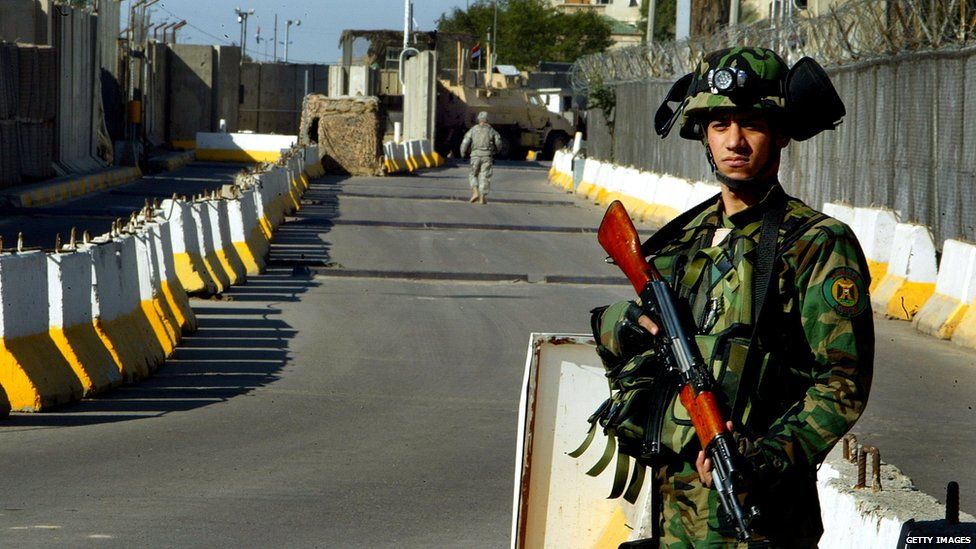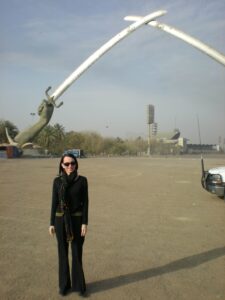By Anne Eberhardt, CFE, CAMS, Senior Director, Valuation & Litigation Consulting
As with many others in the restructuring community, my career has frequently involved working in the trenches of crisis. That usually means crises sparked by lapses of controls resulting in fraud or other allegations of misconduct, but sometimes it has meant working in active war zones.
Reading Ted’s recent blog describing his experiences with Iron Dome took me back to the year I spent in Iraq.
It was the best of times, it was the worst of times. Filled with optimism and goodwill, I hoped to do my part to bring to Iraq that special brand of peaceful prosperity my grandparents’ generation had so successfully exported to the former Axis Powers. (Snicker if you must.)

If I divulge too many details, I’ll have to kill you, so here are the basics. In late 2007, I was assigned to a project providing training to the Iraqi Government to develop capacity for transparency and accountability in their procurement processes. (Stop snickering.)
Though I mainly worked in the Kurdish region, my duties involved occasional travel to the main office in the “Green Zone.” The soldiers guarding the heavily fortified checkpoints surrounding the Green Zone engaged in elaborate security protocols to determine who could enter. If you were not authorized, they might even kill you.
But the Green Zone was not impregnable, and rocket attacks were a common feature of life in Baghdad. Not to worry, though – there was a system in place. High above the city, sensors detected breaches in the atmosphere the moment a rocket was fired. The trajectory of the rocket and its expected target could be determined, followed by a “big voice” warning.
The technology was brilliant: figure out something was happening; predict where it would happen; and warn when it was happening. All anyone had to do was to move out of the way.
The first time I heard the big voice, I was at my desk preparing a PowerPoint for our contracting officer, demonstrating the enormous progress we were making toward achieving our goal of transforming the Iraqi government into a lean, mean – and transparent and accountable – procurement machine. (Okay. Now even I’m snickering.)
Incoming! Incoming! Step away from the window!
Naturally, that message caught my attention, but when none of my colleagues left their desks, I likewise stayed in place until the warning ended a few seconds later.

As Ted observed in his previous blog, we have an enormous capacity to get used to pretty much anything. All of us in that office knew rockets were common in Baghdad in the spring of 2008 and that sometimes they killed people. Yet when warned, we yawned, pretending nothing was happening. As if we were certain that nothing bad could happen to us.
I left Baghdad in October of 2008 to begin a project for a client caught up in the financial crisis after Fannie Mae and Freddie Mac brought the global financial system to its knees. Since then, other bedazzling financial disasters, such as Theranos, Purdue Pharma, FTX, and now Autonomy, continue to entertain us. More quietly, government enforcement actions – and penalties – have skyrocketed for violations of anti-money laundering, sanctions, and foreign bribery laws.
Again and again, financial catastrophe happens, despite regulation, fancy shmancy boards of directors, well-lawyered policies and procedures, and super high IQ founders. But warning systems are only as good as our willingness to be warned. Bad things happen to the best of us. Complacency may be the mother of all challenges organizations face: smart people caught up in their vision, drinking the homebrew Kool-Aid, ignoring the big voice booming Danger, Will Robinson! Danger!
The lesson? Stop. Look. Listen. Give up the snickering and take action. Give up the snickering and take action before disaster strikes.
